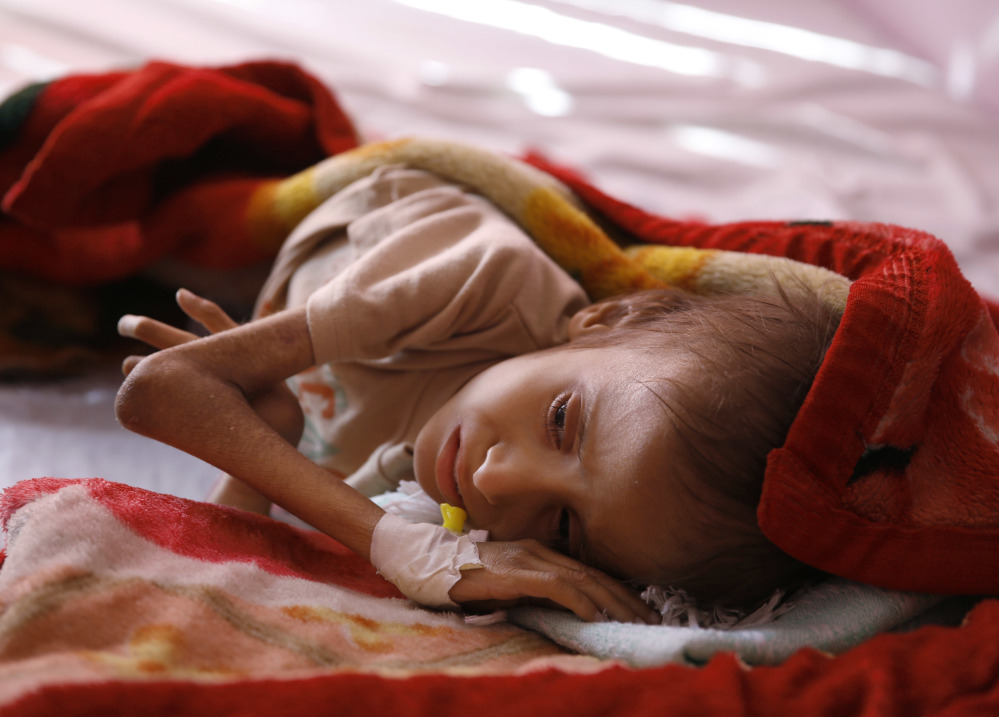SANAA, Yemen — One million people across three Yemeni cities are at risk of a renewed cholera outbreak and other water-borne diseases following the closing of airports and sea ports by a Saudi-led coalition fighting Yemen’s Shiite rebels, an international aid group said Friday.
The International Committee of the Red Cross said that the cities of Hodeida, Saada and Taiz were not able to provide clean water in recent days because of a lack of fuel.
“Close to 1 million people are now deprived of clean water and sanitation in crowded urban environments in a country slowly emerging from the worst cholera outbreak in modern times,” said Alexander Faite, head of the Red Cross delegation in the war-ravaged nation.
The Red Cross said other major urban cities, including the capital, Sanaa, will find themselves in the same situation in less than two weeks unless imports of essential goods resume immediately.
The U.S.-backed coalition imposed a land, sea and air blockade on Nov. 6 after a missile attack by rebels targeted the Saudi capital, Riyadh.
Saudi Arabia said Monday the coalition would lift the blockade after widespread international criticism.
On Thursday, U.N. Secretary-General Antonio Guterres wrote to Saudi Arabia’s U.N. ambassado, saying the Gulf kingdom’s failure to reopen key Yemen airports and sea ports is reversing humanitarian efforts to tackle the crisis in the impoverished country.
U.N. spokesman Stephane Dujarric said Guterres welcomed the reopening of the port in the city of Aden; however, he said this “will not meet the needs of 28 million Yemenis.”
Suspected airstrikes by the Saudi-led coalition killed at least 21 people Friday in the country’s west and northwest, said Yemeni security officials and witnesses.
One airstrike hit a bus in the el-Zaher district in the western province of Hodeida, killing six civilians, they said.
At least 15 people were killed in another airstrike on a market in Yemen’s northwestern Hajja province, controlled by the Shiite rebels, the officials and witnesses said.
Over the past two years, more than 10,000 people have been killed and 3 million displaced in the coalition’s air campaign. With the country in a stalemate war, cholera began to rear its ugly head in October 2016, but the epidemic escalated rapidly in April.
The fighting has damaged infrastructure and caused shortages of medicine and pushed the Arab world’s poorest country to the brink of famine.
Send questions/comments to the editors.



Success. Please wait for the page to reload. If the page does not reload within 5 seconds, please refresh the page.
Enter your email and password to access comments.
Hi, to comment on stories you must . This profile is in addition to your subscription and website login.
Already have a commenting profile? .
Invalid username/password.
Please check your email to confirm and complete your registration.
Only subscribers are eligible to post comments. Please subscribe or login first for digital access. Here’s why.
Use the form below to reset your password. When you've submitted your account email, we will send an email with a reset code.